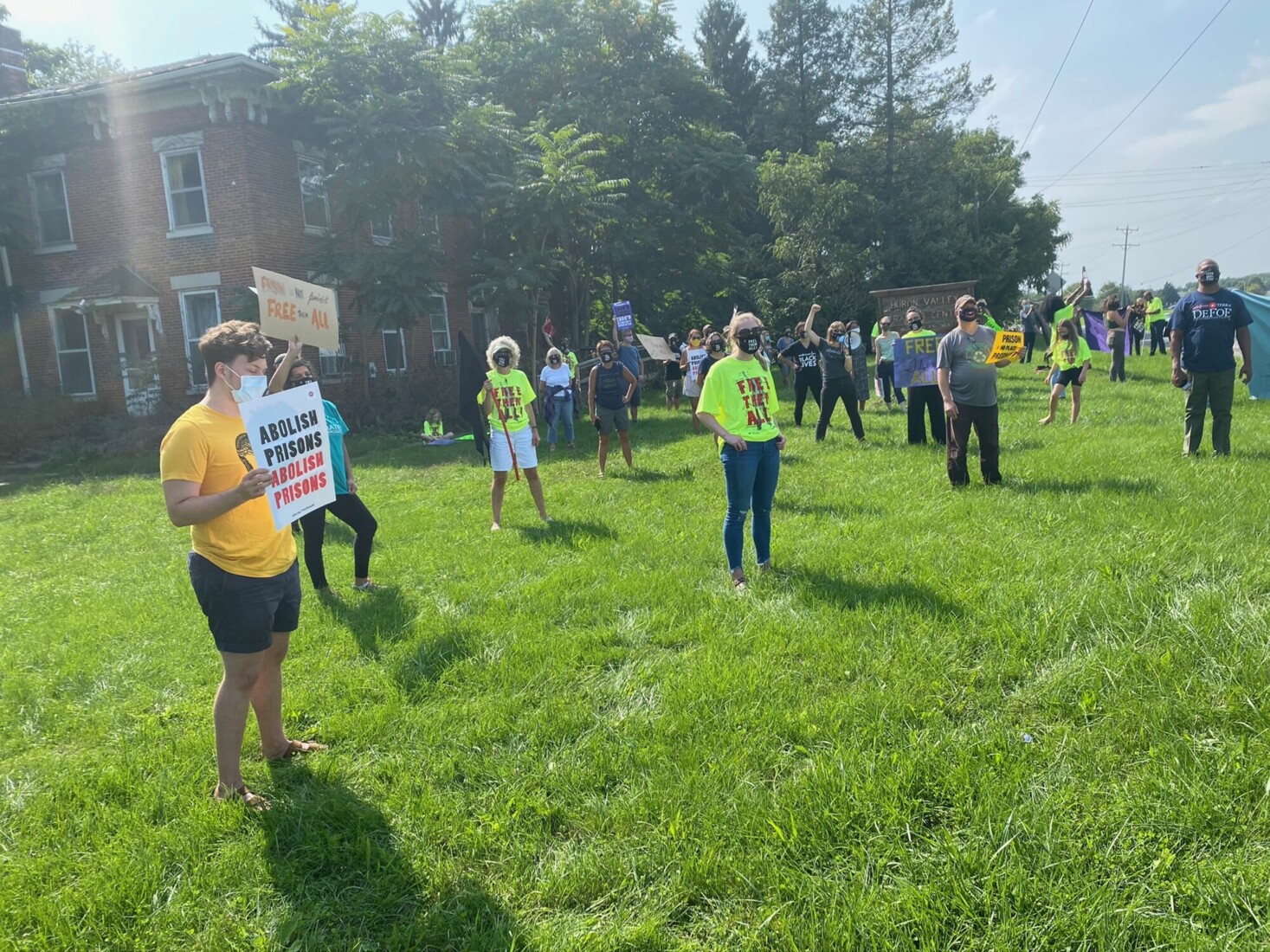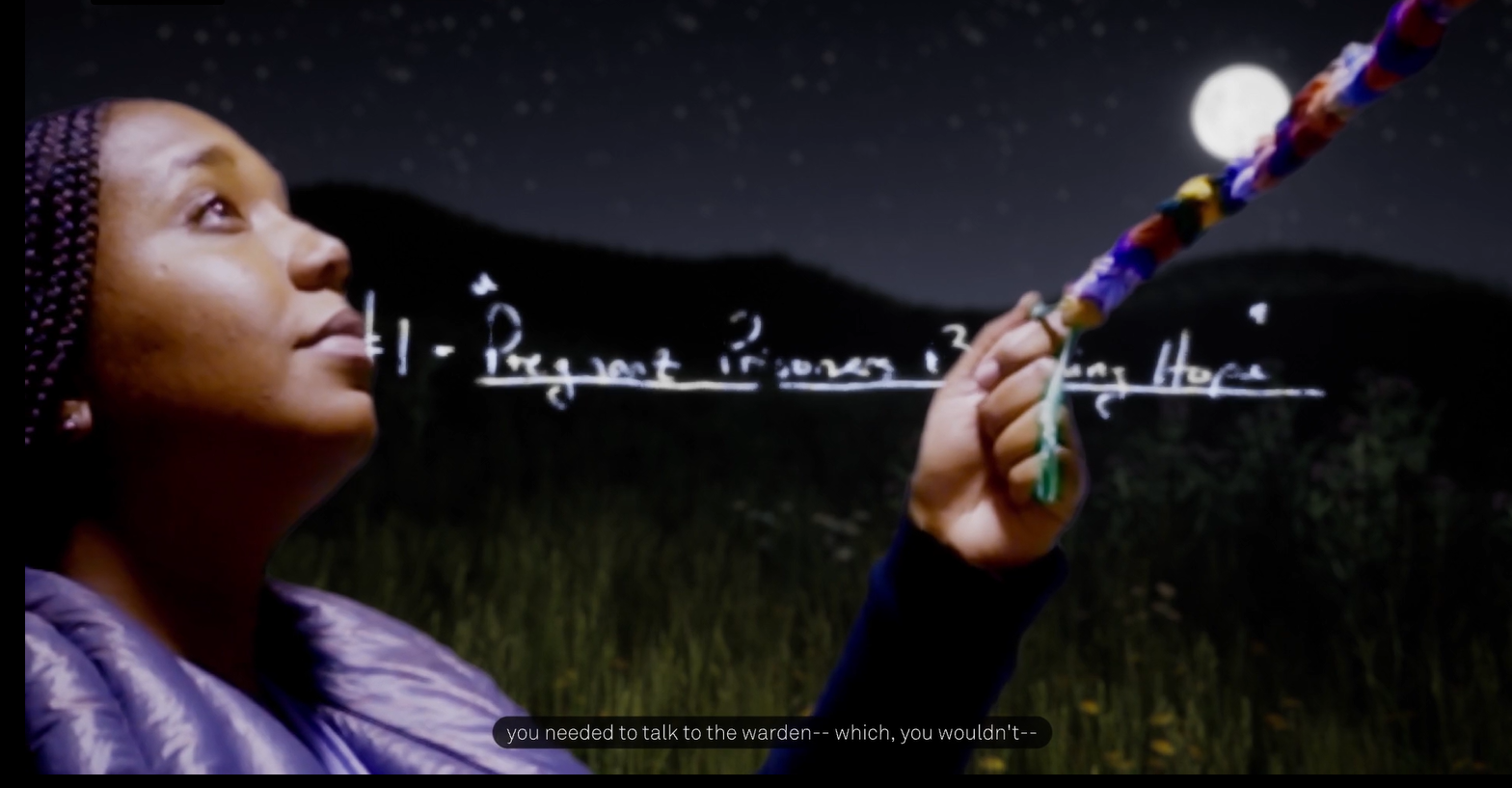
At a Free Them All action in Michigan earlier this year, community members and groups called for release of people in prisons, jails, and detention centers. Mary Buchanan
No one should be subject to the inhumane conditions in U.S. prisons, especially people who are pregnant or have recently given birth. But across the country, imprisoned people lack access to critical maternal health care and postpartum supports. And the number of pregnant people sent to prison are on the rise.
In the fall of this year, Michigan took a significant step to safeguard pregnant people, their babies, and families. The governor announced that the state would limit its use of restraints on pregnant people. It will also allow parents more time with newborns and expand access to birth plans.
These changes are the direct result of organizing and advocacy by incarcerated people, their loved ones, and organizations, including AFSC and Siwatu Freedom Team. Our coalition has worked for many years to improve conditions for people in Michigan prisons—as part of our ongoing call for a future without prisons.
We’re also still pushing for the passage of a Senate bill that would create an outside community oversight committee for the one women’s prison in Michigan. The Huron Valley Women’s Prison in Ypsilanti has been overcrowded with excessively harsh conditions for many years.
Current and formerly incarcerated people have shared their own stories of the inhumane conditions they faced at the prison. Their words have helped raise awareness and move public officials, including the governor, to support changes.
Siwatu-Salama Ra was forced to give birth while incarcerated. She has shared her experiences of pregnancy, birthing, and struggle to breastfeed her son. She also helped gather stories from other women and people inside. Our coalition, which is centered in Siwatu’s Freedom Team, helped get the word out to the public through our Kites for Liberation multimedia campaign, which includes video, public art installation, and more.
Watch Siwatu speak in video below:

These human stories and the support of our coalition and many other community members made a difference. We were heartened when the governor announced changes to protect the health and safety of pregnant people and their children. But much, much more must be done.
Our coalition is rooted in the belief that prisons are not conducive to healing, transformation, or accountability. Ultimately, we must create the community care necessary to ensure no one—including pregnant people and caregivers—is ever subject to prison and jails.
While we build on community power toward a world without prisons, we are committed to making sure people who are incarcerated are treated with as much kindness, respect, and recognition of our shared humanity as possible.